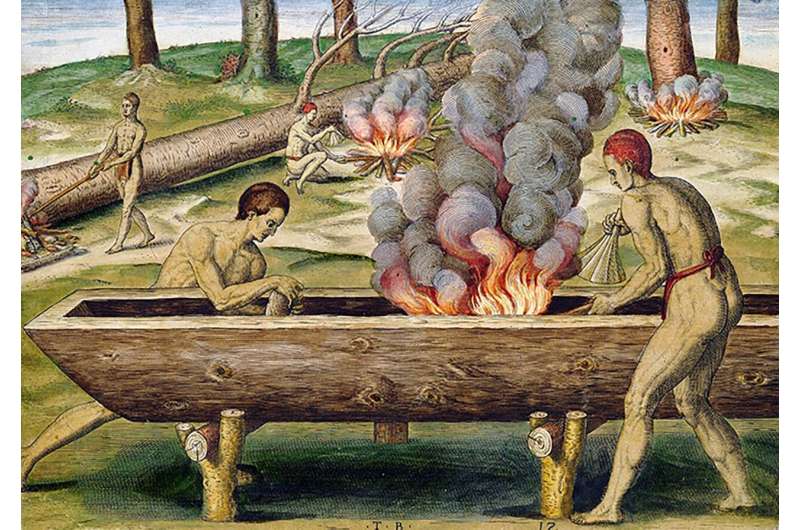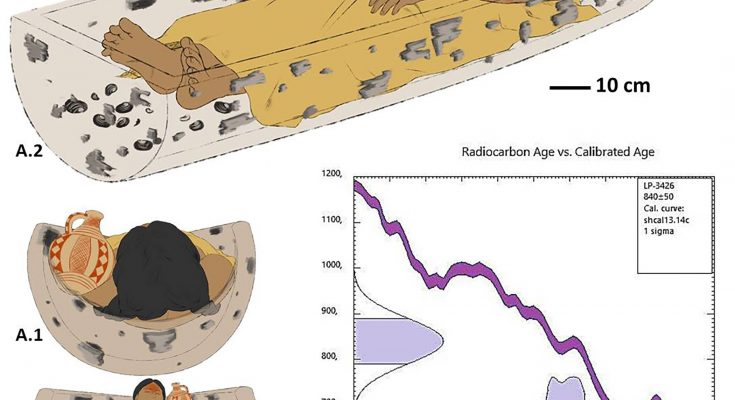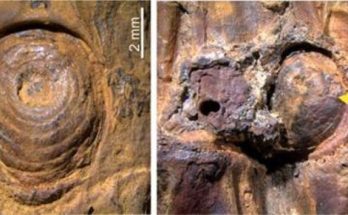A team of researchers affiliated with multiple institutions in Chile and Argentina, have found the remains of a woman buried in a canoe approximately 800 years ago—the first evidence of such a burial to be found in Argentinian Patagonia. In their paper published on the open-access site, PLOS ONE, the group describes their study of the remains.
The remains were found at a dig site called Newen Antug, which is close to Lake Lacár in the western part of Argentina. Analysis has shown that the woman was between 17 and 25 years old at the time of her death, but the researchers were not able to determine the cause of death. They also found a jug placed near her head, and she was surrounded by almost 600 bits of wood from a single Chilean cedar tree; there were also signs that the wood had been charred. Wooden canoes of the time, known as wampo, were hollowed out using fire. Testing of the woman’s bone fragments showed she was from approximately 1142 AD, which means she was likely a member of the Mapuche culture and that she lived and died before the Spanish arrived.
The find marks the first time a canoe-type burial has been seen in Argentinean Patagonia and represents a truly rare find—most canoe burials were for men. The researchers suggest their finding hints that the practice might have been more widespread than thought.

Prior research has suggested that burying people in a canoe was part of a ritual intended to allow deceased individuals to make a final journey across mystical waters to another land known as Nomelafken, where they would reside in a place known as the “destination of souls.”
The researchers note that the jug found next to her head had clearly been put there by whoever was charged with her burial, and there were also signs that she had been laid on a bed of freshwater clams. Her positioning also strongly suggested she had been laid in a canoe as a sort of coffin before being placed in a grave.
#Remainsofwoman; #800yearsago





